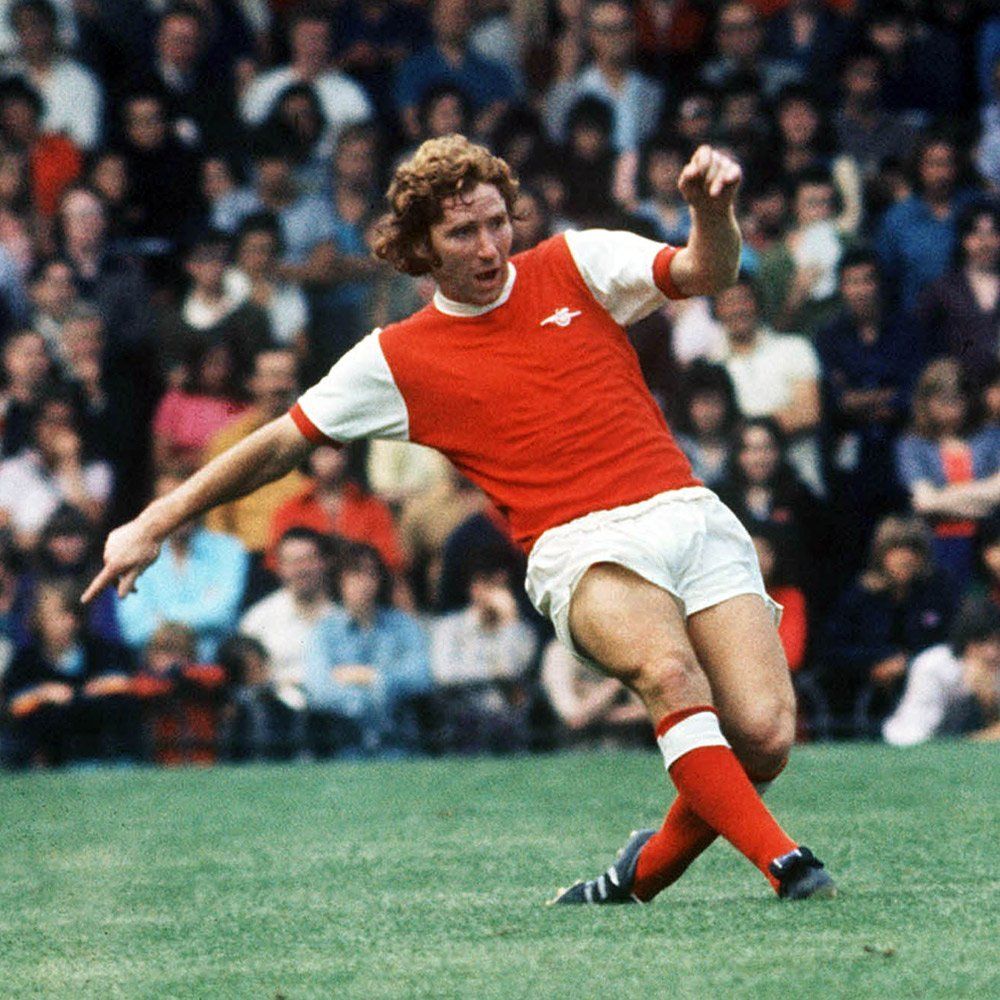Alan Ball (12 May 1945 – 25 April 2007), the youngest member of England's World Cup-winning side, was an industrious midfielder for Blackpool, Everton and Arsenal. Ball started his career with Blackpool before moving to Everton in August 1966 for a British record transfer fee of £110,000 where he was part of the midfield trio, with Howard Kendall and Colin Harvey that helped Everton to the League championship in 1969-70. Eighteen months later, he was surprisingly sold to Arsenal for £220,000. With his red hair and trademark white books, Ball combined a fierce determination to win with a fine touch on the ball and an ability to find the net in important games. He spent five years at Arsenal before joining Southampton where he had two spells, interrupted by a brief period in North American soccer, before finishing his playing career at Bristol Rovers in 1983. Ball won 72 caps for his country in a 10-year England career.Chosen for England's Under-23 team, he was taken by Alf Ramsey to Europe in May 1965 and given his first cap in Belgrade against Yugoslavia three days before his 20th birthday. Altogether he would play 72 times for England, the last occasion being against Scotland at Wembley in 1975.It was his tireless running and fearless tackling that helped inspire England to victory in the final, as he drove the Germans into the ground with his terrier-like energy. On 100 minutes, Nobby Stiles sent him a searching pass. Ball would later say that he had "already died twice" and that he told himself, "Oh, no, I can't get that one! I'm finished!" But get it he did, putting over the cross which Geoff Hurst struck furiously against the underside of the bar. Bakhramov, the Soviet linesman, flagged for a goal and controversial though it was, it tipped the balanceHe also enjoyed a varied managerial career, taking charge of Portsmouth (twice), Manchester City, Southampton, Blackpool, Stoke City and Exeter. He was awarded an MBE in 2000 for his services to football.
Alan Ball

